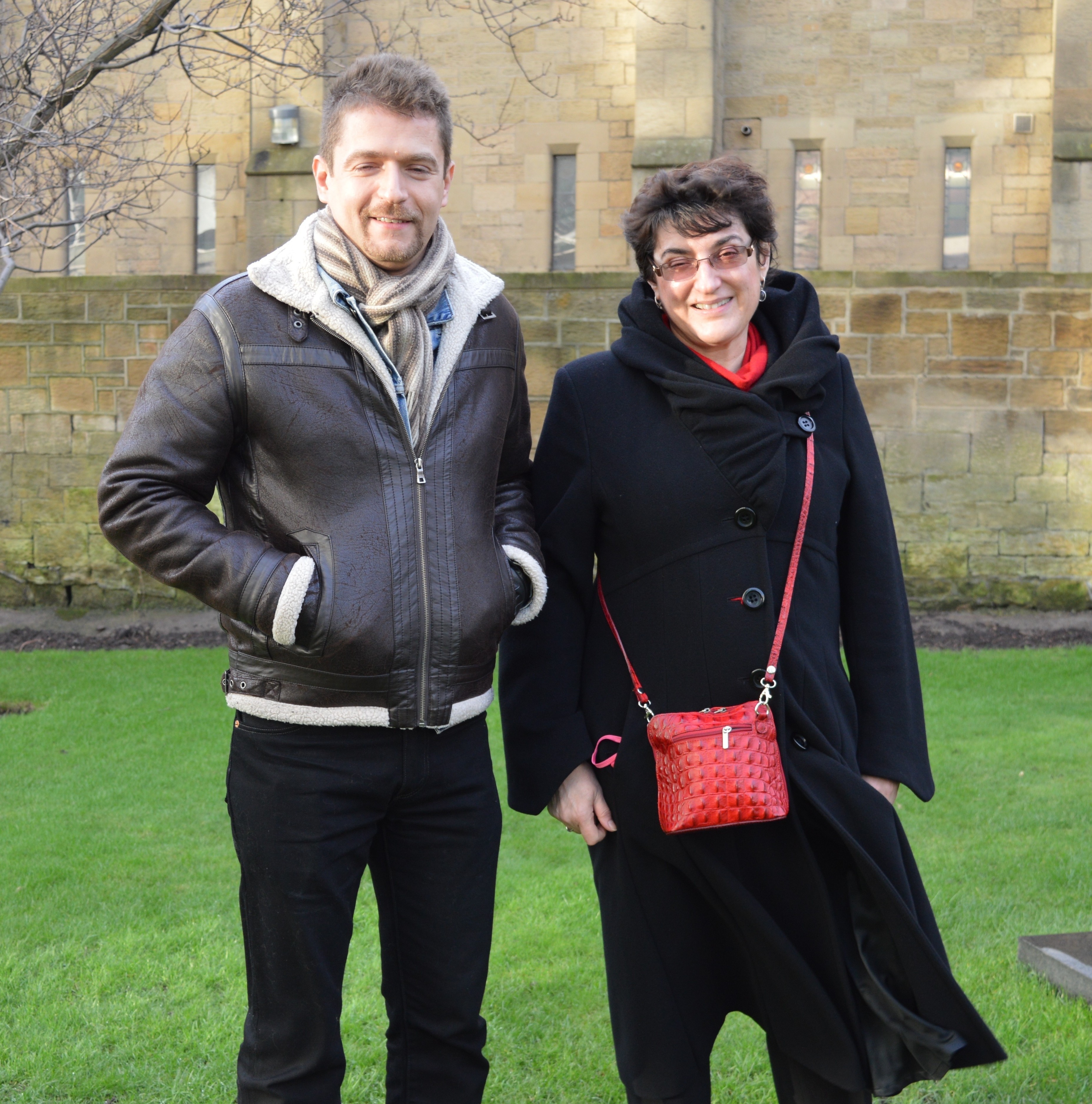
Name: Ruben Fossion
Institution: National Autonomous University of Mexico (UNAM)
Connection to the Academy: Newton Advanced Fellow
Ruben Fossion is one of the Academy's first Newton Advanced Fellows, at the National Autonomous University of Mexico (UNAM).
He was awarded a fellowship in 2015 to build a three year collaboration with Professor Maia Angelova at Northumbria University on "Loss of complexity of human physiological signals with ageing and degenerative disease".
Here, Ruben talks about his research, his Newton Advanced Fellowship and working as a researcher in Mexico.
Tell us about your research project
I’m a physicist, working with an interdisciplinary team including medical doctors, computer experts and programmers. In many countries in the world, populations are getting older and individual people are becoming more fragile. Geriatricians have a specialized word for that: they call this "frailty". They are not ill, but they are less robust than young adults, thus if something happens to them, for example if they get the flu, they don’t recuperate as well as younger people, and there is a higher chance for a negative end result such as becoming dependent, chronic illness, or even death. My project is on quantifying frailty, both age-associated frailty and frailty associated with chronic disease. We think most of the important problems in the world have to do with the resilience or fragility of complex dynamical systems: in economy, people try to understand what generates a globalized financial crisis and how you can prevent it, in climate science there are important efforts to understand global warming and what we can do about it. There is an important exchange of ideas and methods between these very different fields of interests of complex systems, and in all of these fields, one of the central questions is how to quantify its resilience or fragility to try to predict its possible collapse and hopefully prevent it.
Tell us about your experience of applying for a Newton Advanced Fellowship
I knew Maia from another collaboration. I was very enthusiastic because of this previous contact so I wrote an application as quickly as possible. We talked by email, we were on Skype for hours, we designed a project and wrote it and submitted it, and 6 months later we had a happy response.
So how is it going?
It’s going fine. There are two important aspects of our project. One is theoretical - as a physicist that’s the easiest approach, because we can just sit behind our desks, study the existing data on a computer, and that’s what we’ve done until now. The next part will be more difficult, measuring data in patients, and that’s something we will start in January. As a physicist, that is the most challenging part, but it’s incredibly interesting to generate your own data – and very exciting!
How do you think this Fellowship will affect your career?
I go to conferences, and I’ve been to Northumbria University a couple of times, but a new thing for me that stands out is that I can take my students with me. That’s fantastic, because my students are interacting with brand new research, and meeting international research professionals working on all kinds of cutting edge methods. I think that’s fantastic.
I really enjoy interaction with my students. They’re really enthusiastic, and through this Fellowship, they are becoming even more enthusiastic.
What made you want to become a researcher?
Actually, it all came naturally! I like reading, studying, I’m really curious – I became a physicist because I like seeing the stars. For almost every physicist, this is what first catches their attention. So I finished my first degree in physics, and then I got the opportunity to do a PhD. Still at that point I didn’t have the idea to become a researcher, I didn’t know what that was, so I just studied and enjoyed it The next step, my principal motivation was to go abroad. I was really fascinated by Greece, and then my first post doc I had the chance to go and practice my Greek in real life. Then I had the opportunity to go to Italy and learn Italian, and to Mexico and learn Spanish. Now, I’m really passionate about being a researcher, but I needed several post docs to define what I can do, what are my interests, and to form my own research ideas.
What are your plans for the rest of the Fellowship?
My Fellowship has not been running for a year yet, and I’ve already been to the UK twice, and Maia has been to Mexico once. She will be visiting again next March, and then I plan to come in June or July. The bilateral agreement between universities in the UK and in Mexico has been a challenge - it has to be bilingual, both in English and in Spanish, so each time the administrators and the lawyers make a correction, I need to translate it back and forth, which is taking a bit longer than we expected, but it should be finalised very soon. By comparison, I think the next two years should be very smooth! I think this is good practice, it’s an integral part of most research projects, so it’s been very useful experience for the future. I am very happy right now - let’s see what comes out of the second and third years!